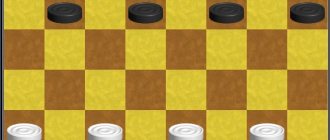How to choose a topic for self-education?
There are only two main criteria:
- requirement to study the topic from the outside (formulated in regulatory documents, in particular, in the Federal State Educational Standard for Preschool Education);
- the work of the teacher himself (lack of experience and knowledge to resolve a particular pedagogical situation).
Thus, before choosing a topic, you need to familiarize yourself with the regulatory framework for preschool education and analyze your own experience.
According to the Federal State Educational Standard, a preschool child develops in the following areas:
- social and communicative;
- educational;
- speech;
- artistic and aesthetic;
- physical.
Four types of plans
We will talk about four types of plans, each of which you can use independently or combine. Create something of your own that suits you.
Time based plan
This plan is universal: it is suitable for those who want to study one or several subjects at once.
Everything is simple here: you “book” a certain amount of time in the morning, afternoon and/or evening, after which you create your schedule, hang it on the wall and stick to it.
Place based plan
It's a cunning plan because it puts you in a position where you can't help but learn.
Places can be very different:
- a park;
- library;
- favorite cafe;
- public transport.
The essence of such plans is that you purposefully go there to learn. Surprisingly, sometimes it’s easier to motivate yourself to do it in the library rather than in the next room.
And, of course, it can be combined with the foreground.
Free plan
The free plan is fundamentally different from the others in that no goals are set during the learning process. Instead, you should keep a journal in which you record what you've learned, what progress you've made, and where you're going.
With this approach, you are often surprised because you simply give yourself, say, two hours of time without knowing what you will study. Some freshness remains and motivation increases.
The disadvantage of this plan lies in its own advantage: you can waste a huge amount of time on unnecessary things.
Goal Based Plan
To create this plan, you need to find three main goals that you want to achieve. Based on them, the entire training program is built.
This plan can be combined with others to find the perfect balance and satisfaction.
Now let's find out how to create a self-education plan.
What is self-education?
The terms education and self-education are familiar to us from school. Education is distinguished by the presence of a teacher, teacher or leader who directs the process in the right direction, monitors the progress of learning and conducts checks. For example: online school. The principles of self-education are based on the complete self-control of the student. All the responsibilities of a mentor fall on his shoulders.
Do you need to educate yourself all your life? It’s not even worth explaining the importance of self-education for personal development:
- career growth;
- better quality of life;
- building proactive relationships.
The work of self-education is valued in society. Happy, purposeful people who achieve success always attract others because they understand the role of self-education in a person’s life.
Are you ready to find out your life path scenario for the near future? Do you have the ability for self-organization and self-education? Before you start engaging in your self-development , check whether you have all the listed qualities, because the success of the entire event depends on their presence:
- curiosity;
- desire to expand horizons;
- ability for systematic learning and research work;
- discipline.
If every point is about you, then quickly continue reading. You've come to the right place.
Education is not just a matter of schooling. School provides only the keys to this education. Extracurricular education is the whole life! A person must educate himself throughout his life,” Lunacharsky A.V., Soviet statesman, publicist and writer.
How to make a self-education plan
1
Find out why you want to learn this skill
This is a preparatory step that should be taken very seriously. We often do thoughtless things that cost a lot: both time and money. In terms of training, everything is even more critical: you can waste several months, or even years.
This is especially true if you want to learn programming. In order to start making money in this field, they say you need to study from six months to a year and a half. So if you don't feel motivated or enthusiastic enough, then maybe it's not for you.
It's all about being intrinsically motivated. Here are some questions to ask yourself:
- Do you want to find a job that is more meaningful and important than your current one?
- Do you want to find a higher paying job?
- Do you want to change the world?
Even if the answers are a little pretentious, it is important that you understand that they are honest and frank.
The preparatory stage is completed. At the second stage, you will need a sheet of A4 paper or an electronic file. This is a must. You need to create a step-by-step instruction for yourself so that it constantly looms before your eyes and does not allow you to be distracted by anything unimportant.
2
Make a list of goals
This is not as simple as it might seem at first glance. You should come up with as many goals as possible so that you can compare them later and choose the most important one(s). So don’t limit yourself to something like “I want to learn how to create a website with WordPress” or “I want to learn how to knit a sweater.”
So, the list of goals is ready. How to choose the most important ones? First of all, you need to find out whether any of them are combined.
A combined goal is a goal that opens up more opportunities for you:
- Learning a new language can help you move to another country or get a better paying job.
- Learning Java will increase your income several times.
If you learn to knit a sweater, then most likely it will be an end in itself.
Therefore, ideally, you should choose goals that will significantly move you forward. This also has a positive effect on motivation.
Select one to three goals. There shouldn't be too many of them. At the same time, they can be quite ambitious, but not prohibitive.
3
Make a list of resources
You can either find everything you need on the Internet. Here are the resources you should consider:
- MOOC courses;
- books;
- magazines;
- blogs;
- educational videos;
- attending conferences and lectures;
- internship;
- volunteer work;
- trips;
- finding a mentor.
At the same time, you must understand that there is not enough time for everything. It is important to choose 3-5 main resources and focus on them. The rest is only worth pursuing if you purposefully set aside time to try something new.
4
Set key learning points
These are the points by which you can track your progress. Learning is a long process and sometimes boring, but the main difficulty is that you will not immediately get results.
In addition, an ambitious goal can easily suppress your psyche, especially at times when motivation tends to zero. Therefore, establish the key points:
- a certain number of written pages;
- website creation;
- Intermediate level in English;
- creating a phone application.
5
Set a schedule and daily routine
Learning is not something you can cram into your life and hope it will work. This is the basis, the Sun, around which all planets must revolve. Don't forget that you are studying to make your life significantly better, which means that this becomes your top priority.
Create a time frame for each goal . What are you going to do today, tomorrow, next week, in six months to achieve your goal? Make sure you master time management skills and learn how to properly manage your time.
Create a daily routine . You must change your life, because it will no longer be the same - it is naive to hope for this. A lot will change because you will be dedicating a large amount of time to learning.
So, let's repeat: you must change your daily routine, book time to learn your skill. And also set a deadline in order to keep yourself on your toes.
6
Track your progress
Tracking progress is the very process that positively affects the level of motivation. As has already been said, during the learning process you will not immediately begin to receive practical results, which means you can give up at any time. But not if you track your progress.
By tracking we primarily mean keeping a diary. You write down everything you studied and how you studied it, as well as how much time it took. Document every little detail. After a few weeks, it will be possible to draw certain conclusions based on this information. You will learn to identify trends, understand your strengths and weaknesses, bad and good habits. And finally, you will begin to draw the right conclusions, adjusting both your behavior and your self-education plan.
The English-language Internet offers a wide variety of applications that you can use to track your learning progress in order to adjust your plan if there are inaccuracies or gaps in it.
- Degreed. Learners use Degreed to quantify, track, and organize learning from any source, both formal and informal.
- Diigo. Simplify the operation of your information system and improve performance. Also adds digital marks and notes to PDFs, saves links, images and pages, and encourages collaboration and sharing with other students.
- TopTracker. This app can be used to track the time you spend in Photoshop or other digital tools (and therefore suitable for web designers and programmers).
The writer Isaac Asimov is said to have once said, “Self-education is the only education you have.” It’s hard to argue with this, because you are the one who knows best what you want to study. The main thing is to create an effective plan and strictly follow it.
We wish you good luck!
Did you like the article? Join our communities on social networks or our Telegram channel and don’t miss the release of new useful materials: TelegramVKontakteFacebook
We also recommend reading:
- Storytelling
- Secrets of self-education
- A Guide to Creating a Personal Development Plan
- Best of the year. Part three
- Contingency planning
- Four steps to create a personal development plan
- Rules and secrets of self-education
- Personal goal setting
- Should you have a plan B?
- Business motivation model
- How to convert your abilities into money
Keywords:1LLL

